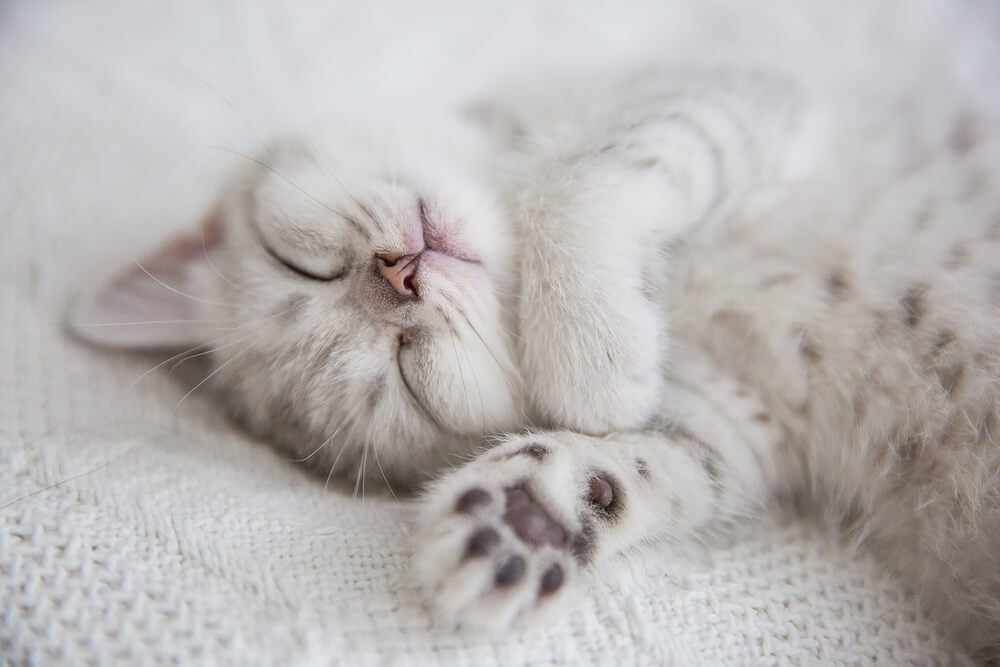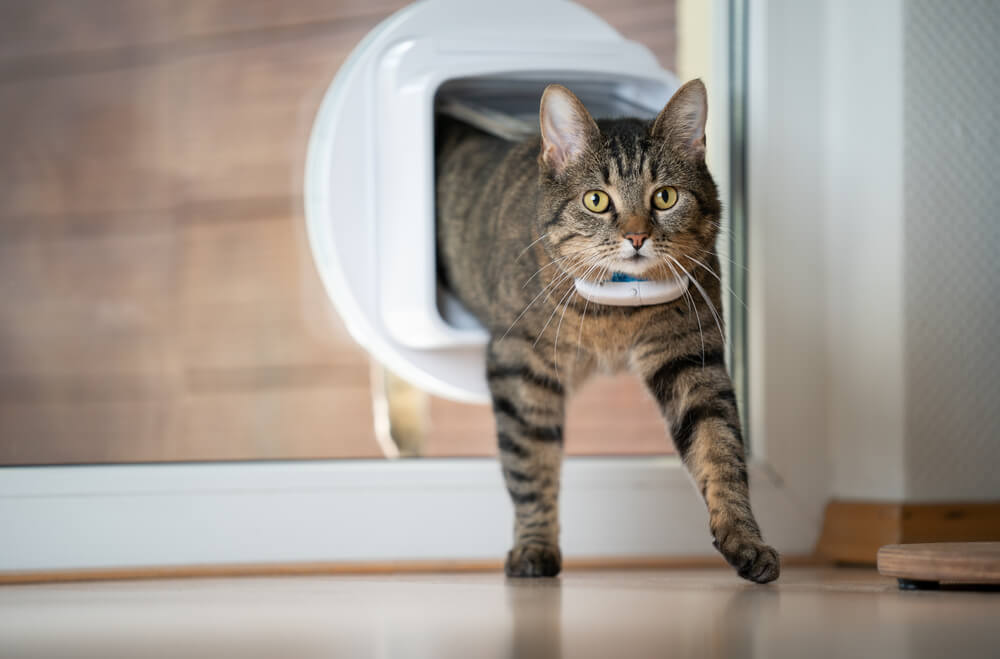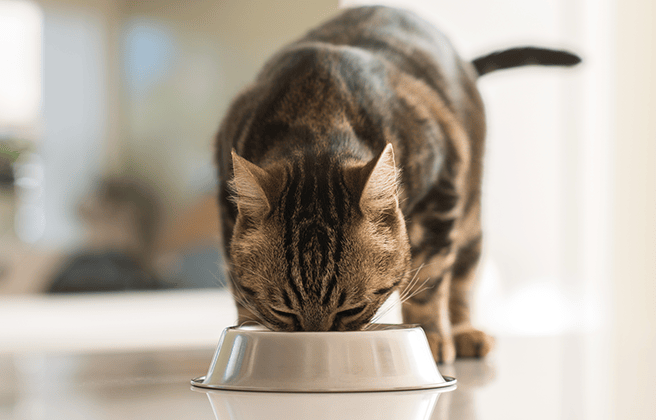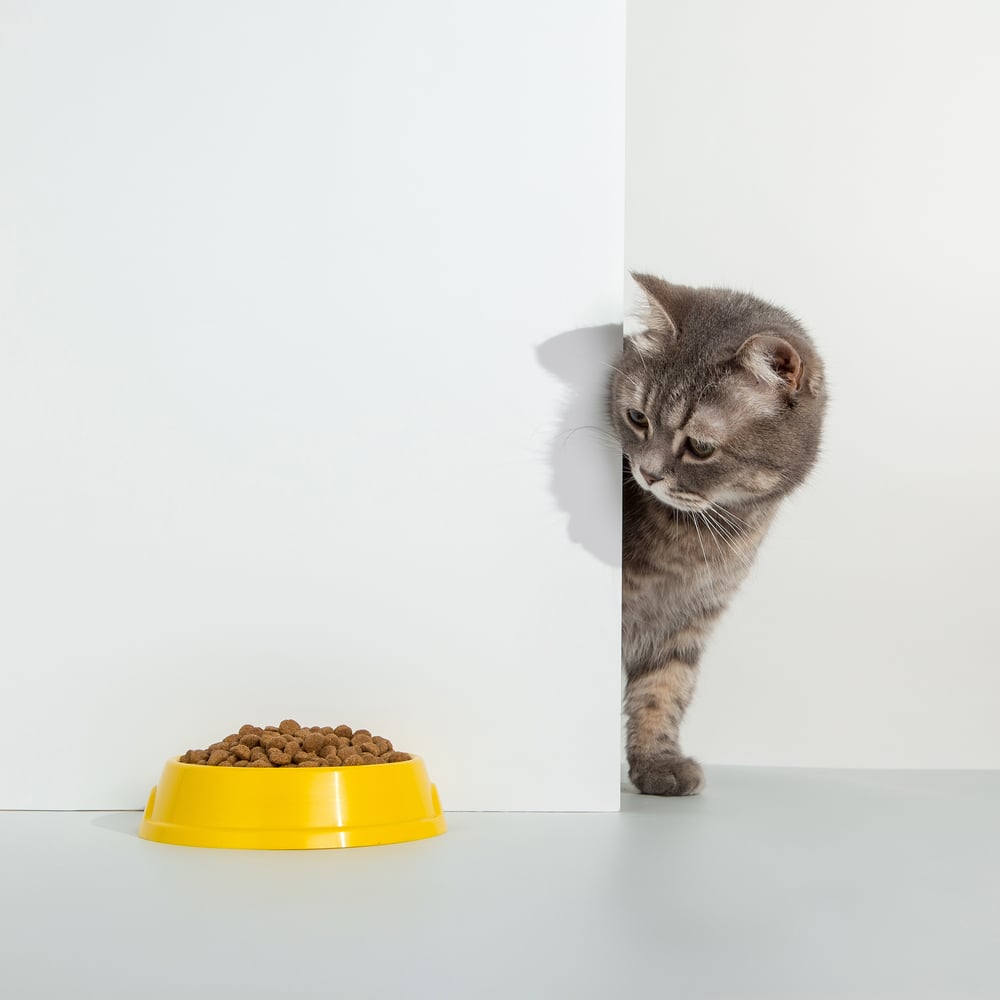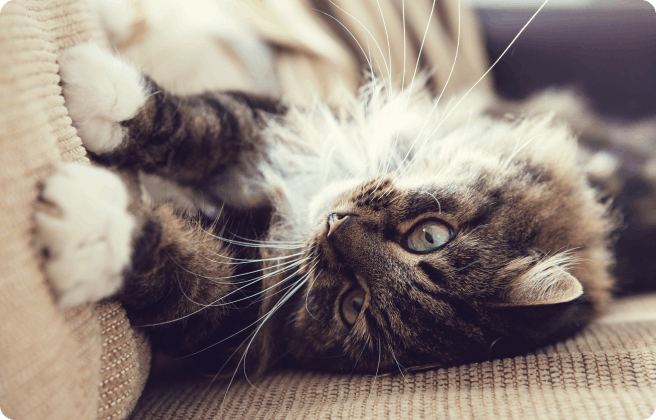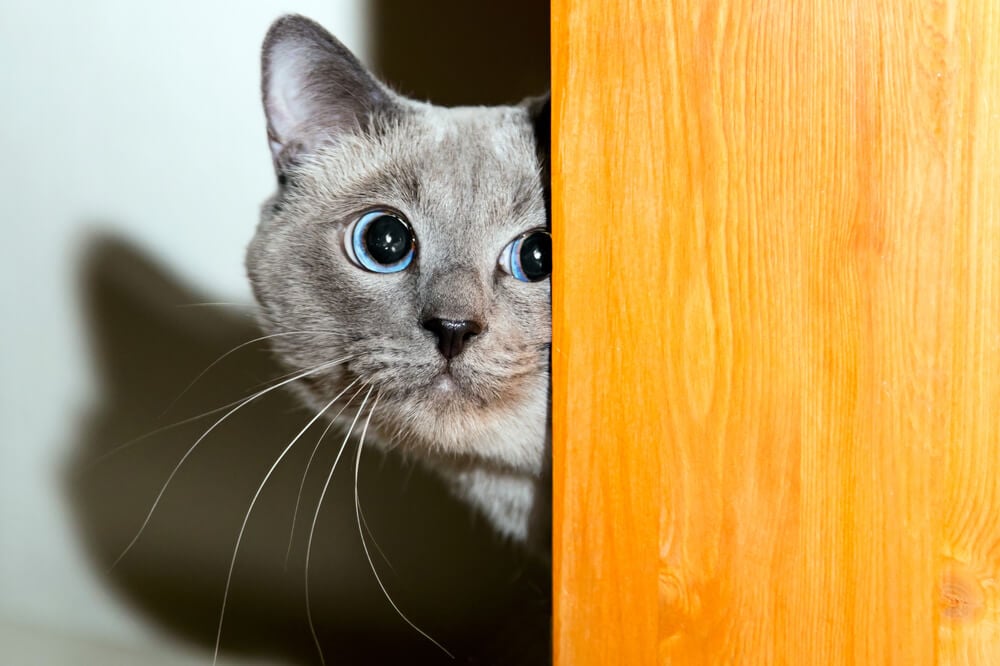
As a doting cat parent, you’re no doubt finely attuned to your cat’s moods and so can usually tell when something is wrong. But it’s not always easy to decipher your cat’s behavior, and, if your cat is acting unusually, the reasons why.
One thing many pet parents worry about is how to know if their cat is stressed, and how to help them if they are.
After all, most of us cat parents know what it’s like to be stressed, so if we think that our cat is stressed too it can add to both our stress levels as well as our cat’s.
To help you, here’s everything you need to know about recognizing the signs of stress in cats, the reasons they might be stressed, and how to help them relieve their stress if they’re suffering.
What are the signs that my cat may be stressed?
It’s not always easy to tell if your cat is stressed, but signs and common behaviors to look out for include:
- Hiding and being less social than usual
- Being fearful of family members or strangers
- Changes in appetite and/or thirst
- Refusing to use the cat flap or litter tray
- Displaying anger or irritation via hissing, growling, or excessive meowing
- Scratching furniture or other items more often and more aggressively than usual
- Gastrointestinal issues such as vomiting or diarrhea
- Overgrooming
Your cat might also show they are stressed through their body language by doing some of the following:
- Crouching or looking tense
- Flattening their ears
- Skin twitching
- Swallowing more often, or licking their lips or nose
- Having dilated pupils
Read more about decoding your cat’s behavior in our article How do I read my cat’s body language?
What is causing my cat’s stress?
If you’re worried your cat is stressed about something, determining the cause is not always straightforward.
Some common causes of stress in cats include:
Moving house or changing their existing environment
Cats thrive on routine, so any alterations to that routine can sometimes cause some cats to suffer stress. If you’re planning to move house, you’ll be changing everything that they’re used to, so try to prepare them and plan everything in advance.
Some cat parents find that putting their cat in a cattery or leaving them with a friend helps as they are then removed from the chaotic period of packing and moving belongings. Introduce them gradually to their environment, and make them feel safe where possible by providing reassuringly familiar smells on their blankets or beds.
Another cause of stress for cats can be renovations to your home, such as extensions, remodeling, or decorating inside the house. Again, the change in noise levels, smells, and altered routine can upset them and cause them unease, so ensure you try to maintain their schedule and favorite things such as special toys, or clear areas where they like to sleep as much as possible.
External noise can also lead to stress for your cat, in particular fireworks, loud cars, tools, and music, so take measures where you can. Keep them indoors when you know there’s a risk of fireworks outside, give them their own safe space, and use calming measures such as plug-in pheromones.
New arrivals in the property
Sometimes, the arrival of a new baby can lead to stress for your cat. The same goes for introducing a new pet to the household. Your cat may perceive new arrivals — especially other cats — as a threat, so they will need to be introduced gradually to limit stress for all pirates involved.
Another source of stress is neighborhood cats, either attacking your cat outside or sometimes gaining entry to your house via the cat flap and bullying your cat inside the house. This can be solved by taking action to deter the invader from your property by using a microchipped cat flap or discussing the issue with the other cat’s owner.
Separation anxiety
When left on their own, some cats become anxious and stressed. Often, a cat can grow too attached to certain family members and become stressed when they leave the house, other times it could be because they were weaned too early as a kitten. Whatever the reason, if your cat is suffering from separation anxiety, it can be stressful for them and can lead to them displaying signs of stress.
Rough handling
Another cause of stress for cats is the way they are handled. Some cats do not enjoy being stroked or petted, and will try to get away. Forcing them on your lap or constraining them while you stroke them can cause them stress, so ensure you give your cat the space each individual requires.
How can I help my stressed cat?
As with most health conditions, the first point of contact is your veterinary surgeon if you’re worried that your cat is stressed. They can assess your cat and determine what treatment is required.
The earlier you help your stressed cat, the better, as if they remain stressed and highly strung for long periods it can lead to more serious illness. Your vet might also prescribe your cat medication depending on the level of stress they’re experiencing.
Your vet will be able to suggest ways to help your cat become more calm and reduce their stress levels, such as changing their environment or ways to provide a structured routine for your cat to help them settle.
Cat behavioral experts can also help determine the root of your cat’s stress, and find ways for you and your cat to overcome it. If you think this might help your cat, you can find a local animal behaviorist via a regulated body such as the Animal Behavior and Training Council.
We uphold the highest editorial standards when creating the authoritative content pet parents rely on and trust.
Every piece of clinical content on the Cat Food Advisor is reviewed by our certified Veterinary Advisory Board, which consists of licensed veterinarians and medically certified specialists.
Our reviews are completely independent; we are not paid by any pet food company to promote their products favorably. We do not accept money, gifts, samples or other incentives in exchange for special consideration. For more information see our Disclaimer & Disclosure page.




